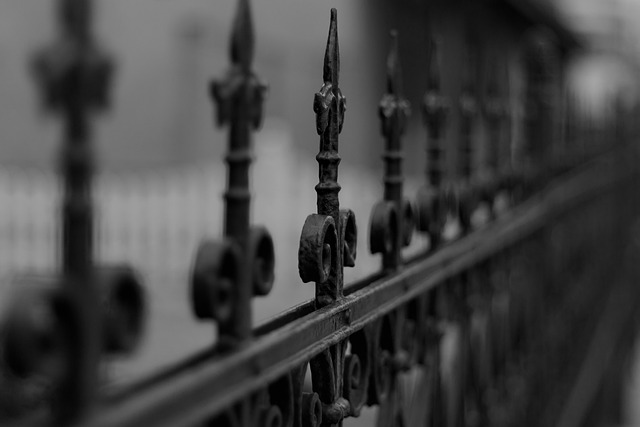In New Bedford, Massachusetts, enhancing your property with a durable and secure fence is made accessible through local chain link fence installers. This comprehensive guide navigates the process, from selecting reputable experts to understanding various chain link fence types suitable for your needs. We delve into the installation process, offering insights into what to expect, and provide essential maintenance tips to ensure your fence stands the test of time. Whether enhancing security or defining outdoor spaces, this article equips homeowners with the knowledge to make informed decisions.
- Finding Reputable Local Fence Installers in New Bedford
- Types of Chain Link Fences for Your Property
- Installation Process: What to Expect from Start to Finish
- Maintaining Your Chain Link Fence: Tips and Best Practices
Finding Reputable Local Fence Installers in New Bedford
When looking for reputable local chain link fence installers in New Bedford, start by checking online reviews and ratings. Websites like Angie’s List, HomeAdvisor, and Google Reviews can provide insights into the quality of work, professionalism, and customer satisfaction of various companies. Look for firms with consistent positive feedback from previous clients.
Another effective approach is to inquire within your community or from local hardware stores. Word-of-mouth recommendations from neighbors or trusted businesses can be a reliable way to find established and trustworthy fence installers who understand the unique needs and regulations of New Bedford. Ensure you verify their licenses, insurance, and experience before hiring them for your chain link fence project.
Types of Chain Link Fences for Your Property
When considering a chain link fence for your New Bedford property, there are several types to choose from, each offering unique benefits and aesthetics. The traditional galvanized steel chain link is a classic choice, known for its durability and strength. This option features a solid, uniform appearance and is ideal for providing security without obstructing views.
For a more decorative touch, you might opt for woven wire fences, which offer both privacy and a visually appealing design. These fences are available in various colors and can be customized to match your property’s style, from rustic to modern. Additionally, vinyl-coated chain link fences provide an extra layer of protection against rust and corrosion, making them a popular choice for homeowners seeking low-maintenance options.
Installation Process: What to Expect from Start to Finish
When you hire local chain link fence installers in New Bedford, Massachusetts, expect a meticulous process that begins with an on-site consultation. During this meeting, the professionals will assess your property, discuss design options, and take measurements to ensure the perfect fit. They’ll also consider factors like local regulations and the best materials for your needs.
The installation itself typically involves several steps. First, the fence posts are set in concrete, providing a sturdy foundation. Then, the chain link fencing is carefully unrolled and secured with metal connectors at predetermined intervals. The installers ensure proper tension and alignment before adding gates, latches, or any additional accessories. Throughout the process, you can expect clear communication from the team, addressing any concerns and ensuring your satisfaction with the final product.
Maintaining Your Chain Link Fence: Tips and Best Practices
Chain link fences require regular maintenance to stay strong and secure. Cleaning your fence is a simple yet important step; brush away dirt and debris regularly, using a soft-bristled brush or garden hose to prevent damage from harsh chemicals. Check for any signs of wear or tear, such as rusted or missing links, and repair these issues promptly to avoid structural failures.
Painting or coating your chain link fence can extend its lifespan and enhance its appearance. Use a high-quality vinyl or zinc-coated paint suitable for outdoor use, applying it evenly across all surfaces. Regular inspections are also key; look for potential hazards like loose posts or damaged panels, addressing these issues before they compromise the fence’s integrity.
